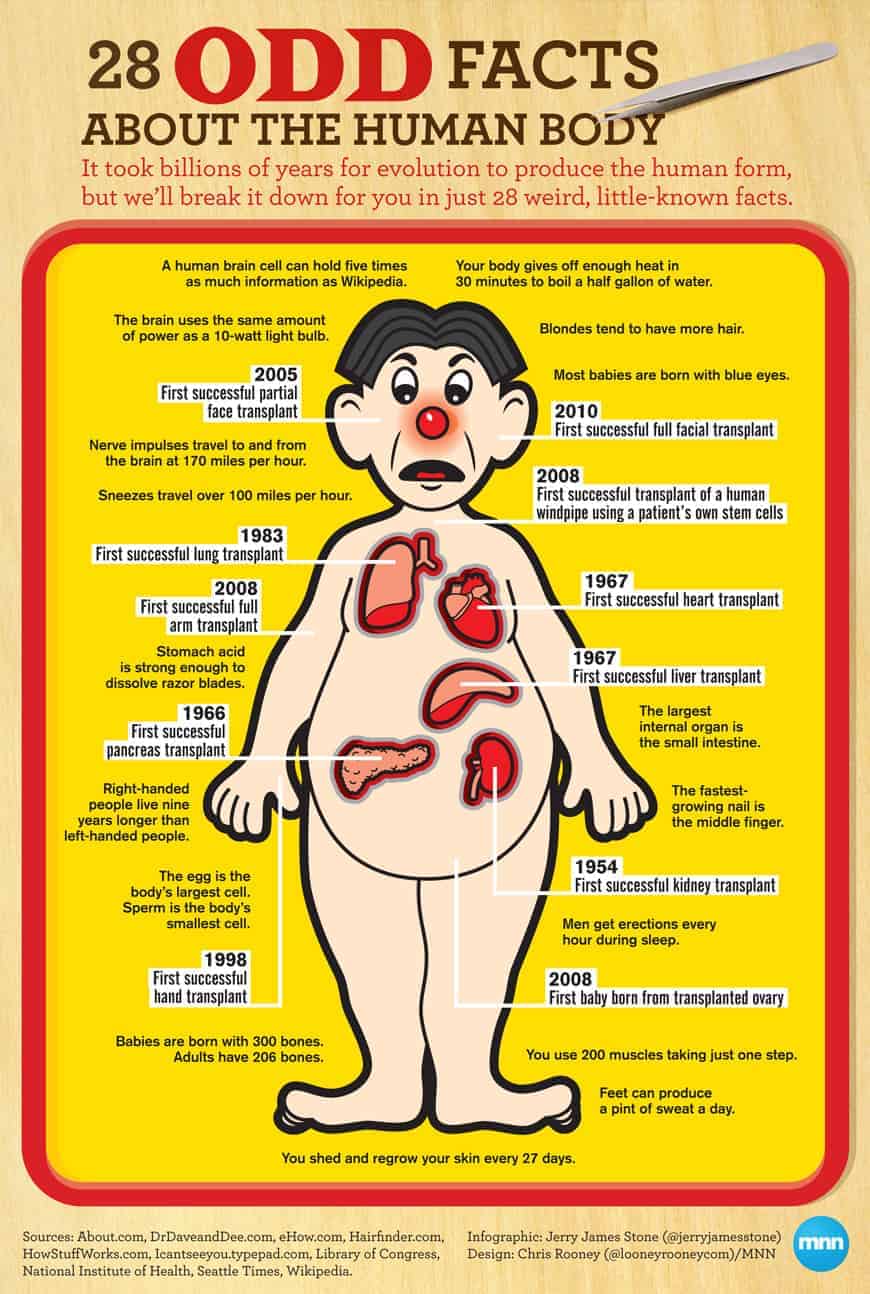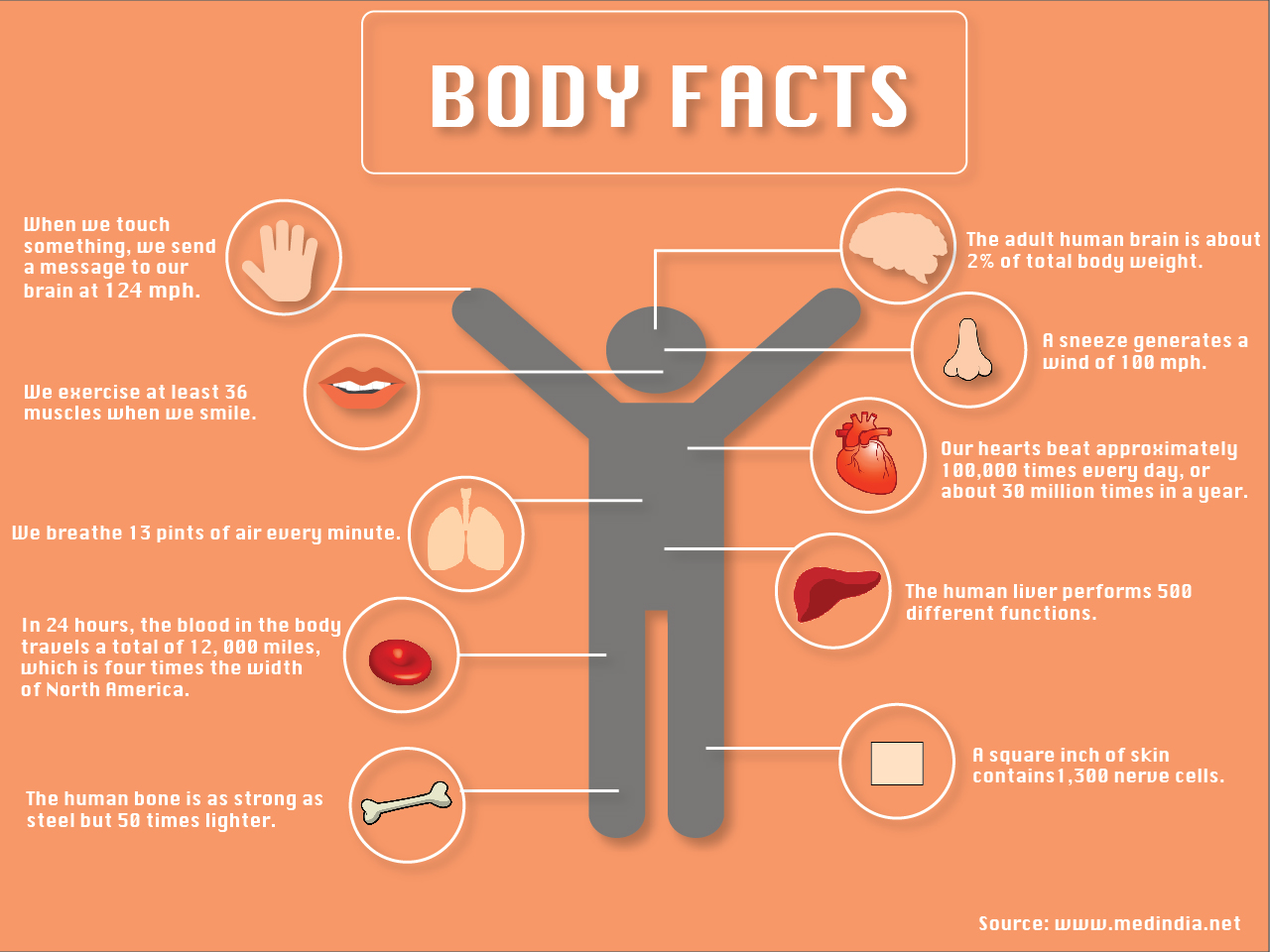Our body is a fascinating and complex machine that performs countless functions every day. From the moment we wake up in the morning to the moment we go to sleep at night, our body is constantly working to keep us alive and healthy. In this article, we will explore some interesting facts about our body that you may not have known before.
The Brain

The brain is the control center of our body, responsible for sending and receiving signals to and from the rest of the body. It is the most complex organ in the body, containing over 100 billion neurons. The brain weighs about 3 pounds and is roughly the size of a grapefruit.
Did you know that the brain can generate enough energy to power a light bulb? It produces about 12-25 watts of electricity, which is enough to light up a small bulb.
The Heart

The heart is the muscle that pumps blood throughout our body. It beats about 100,000 times a day and pumps about 2,000 gallons of blood in a day. The heart is roughly the size of a fist and is located in the center of the chest.
Did you know that the heart can continue to beat even when it is separated from the body? This is because the heart has its own electrical impulse that controls its beating.
The Lungs

The lungs are responsible for bringing oxygen into our body and expelling carbon dioxide. They are made up of tiny air sacs called alveoli, which are surrounded by blood vessels. The lungs are located in the chest and are protected by the rib cage.
Did you know that the surface area of our lungs is roughly the size of a tennis court? This large surface area allows for efficient gas exchange between the air we breathe and the blood in our body.
The Skin

The skin is the largest organ in the body, covering an area of about 20 square feet. It is responsible for protecting our body from external threats and regulating our body temperature. The skin is made up of three layers: the epidermis, dermis, and subcutaneous tissue.
Did you know that the skin is waterproof? It is able to repel water due to the presence of a protein called keratin.
The Digestive System

The digestive system is responsible for breaking down the food we eat into nutrients that our body can use. It starts in the mouth, where food is chewed and mixed with saliva, and ends in the large intestine, where water is absorbed and waste is eliminated. The digestive system includes organs such as the stomach, liver, and pancreas.
Did you know that the small intestine is about 20 feet long? This long length allows for maximum absorption of nutrients from our food.
The Muscles

The muscles in our body are responsible for movement and stability. There are three types of muscles: skeletal, smooth, and cardiac. Skeletal muscles are attached to bones and are responsible for voluntary movement, while smooth muscles are found in organs such as the stomach and intestines and are responsible for involuntary movement.
Did you know that the strongest muscle in the body is the masseter muscle? This muscle is located in the jaw and is responsible for chewing.
The Bones

Our bones provide support and protection for our body. They are also responsible for producing blood cells and storing minerals such as calcium. The human body has 206 bones, with the smallest bone located in the ear and the largest bone located in the thigh.
Did you know that bones are alive and constantly changing? They are able to repair themselves and adapt to different stresses placed on them.
The Senses

Our body has five senses: sight, hearing, taste, smell, and touch. These senses allow us to interact with the world around us and receive information about our environment. Each sense is processed in a different part of the brain.
Did you know that our sense of smell is closely linked to our sense of taste? This is why food may taste different when we have a cold and our sense of smell is impaired.
The Immune System

The immune system is responsible for protecting our body from foreign invaders such as viruses and bacteria. It includes organs such as the spleen and thymus, as well as white blood cells such as T cells and B cells.
Did you know that our body produces about 100 billion new white blood cells every day? This constant production helps to ensure that our immune system is always ready to fight off infection.
Conclusion
Our body is truly amazing and capable of incredible feats. By learning more about how our body works, we can better understand and appreciate all that it does for us every day. Take care of your body and it will take care of you.